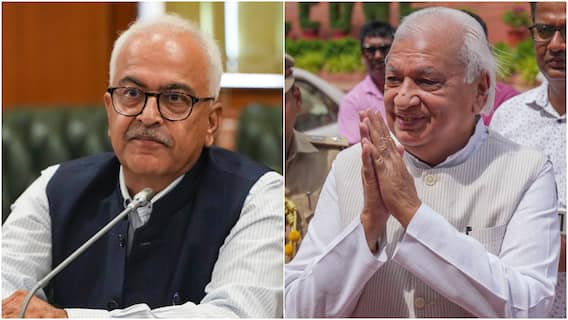SEBI Seeks Public Opinion On Allowing Indian Mutual Funds To Invest In Overseas Funds
SEBI said that domestic funds should be allowed to invest in global entities, given that the overall exposure of these foreign MF/UTs to Indian securities stays under 20 per cent of their net assets

The Securities and Exchange Board of India (SEBI) has sought public opinion on permitting Indian mutual funds to pour funds into overseas mutual funds or unit trusts that invest a part of their assets in Indian securities.
The markets regulator issued a consultation paper on Friday and urged the public to share comments on the issue. The regulator said that the purpose of the paper is “to seek comments from public on the proposal of facilitating investments by Indian Mutual Funds in such Overseas Mutual Funds (‘MFs’)/ Unit Trusts (‘UTs’) that invest certain portion of their assets in Indian securities”.
The body has also suggested that domestic mutual funds should be allowed to invest in such entities, given that the overall exposure of these foreign MF/UTs to Indian securities should be under 20 per cent of their net assets.
Need For Such Investments
SEBI argued that Indian securities provide a lucrative investment avenue for foreign funds and as such several global indices, MFs, UTs, exchange traded funds (ETFs) set aside a portion of their assets for these securities.
Permitting the domestic funds to make these investments in overseas securities will help them diversify their portfolio. “For instance, as of April 30, 2024, the MSCI Emerging Markets Index has 18.08% weightage to Indian securities. Similarly, JP Morgan's 'Emerging Markets Opportunities Fund' holds approximately 15% in Indian investments, according to its latest factsheet as on March 31, 2024. However, ambiguity regarding investments in such overseas funds that may invest certain portion of their funds in Indian securities deters Mutual Funds from investing in those overseas MF/UTs, ETFs and index funds that invest in a basket of countries, which may include India,” the regulator said via the circular.
Terms & Conditions
SEBI also proposed certain terms and conditions that domestic mutual funds will need to adhere to in order to ensure that the investors get efficient cost structures. These conditions include the 20 per cent limit on foreign funds’ exposure to Indian securities.
Further, the regulator noted that these overseas MF/UTs should be managed by an independent investment/fund manager who has been appointed officially and shall be fully involved in the investment related decisions of the fund.
“ Corpus of the overseas MF/UT shall be a blind pool (i.e. common portfolio) with no segregated portfolios. All investors in the overseas MF/UT shall have pari-passu and pro-rata rights in the fund, i.e. they shall receive a share of returns/gains from the fund in proportion to their contribution,” the regulator said as part of other conditions required for making the investment.
Limit Breach
If the overseas fund breaches the exposure limit, the regulator said that Indian mutual funds need to follow an ‘observance period of 6 months from the date of publicly available information of such breach’ and monitor the portfolio rebalancing activity by the concerned overseas entity.
During this period, the Indian MF should refrain from making any new investments in the overseas fund/trust and ‘resume their investments in such overseas MF/UT in case the exposure to Indian securities by such overseas MF/UT falls below the limit of 20 per cent’, the regulator stated.
Also Read : Share Market Today: Special Session Begins, Indices Trade On A Muted Note In Green
Trending News
Top Headlines






































